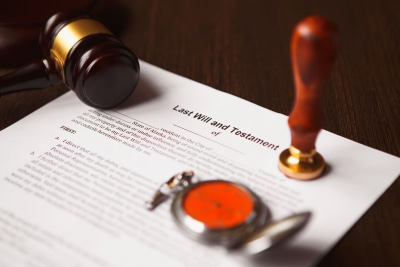Handling Digital Assets In Probate: What You Need To Know
Handling Digital Assets In Probate: What You Need To Know
Managing digital assets after a loved one’s passing can be challenging in today’s technology-driven world. An estate probate attorney can provide critical guidance, helping you navigate the complexities of administering these properties.
Here, you will learn about various types of digital assets and their significance in settling the estate. You will also understand California’s legal framework and how it impacts handling such properties. More importantly, you can explore how a probate lawyer simplifies the legal process and champions efficient estate administration.

How Can An Estate Probate Attorney Help You?
In today’s digital age, an individual’s estate often includes assets like online accounts, social media profiles, digital photos, and documents. An estate probate attorney is crucial in managing these properties during probate, ensuring they are correctly identified, accessed, and handled according to the deceased’s wishes.
Probate attorneys start by reviewing estate documents to identify digital assets and gathering additional information from beneficiaries. Accessing these properties may require court authorization or contacting service providers, with an understanding of platform terms and restrictions being essential.
Once accessed, attorneys focus on preserving data, identifying beneficiaries, and closing unnecessary accounts to prevent unauthorized access. They handle social media accounts, address copyright and intellectual property issues, and protect the deceased’s digital legacy.
Managing such assets involves challenges like password protection, privacy settings, and data retention policies. Legal and technical solutions are often necessary to navigate these issues, ensuring the deceased’s digital assets are appropriately managed and their wishes fulfilled.
What Are Digital Assets?
Digital footprint, from personal photos and documents to financial transactions and social media profiles, forms a valuable part of one’s estate. As a result, the probate administration of digital assets has become an essential component of estate settlement.
Settling the properties of a deceased loved one requires a clear understanding of such assets and their importance. It can hold significant monetary and sentimental value and form an essential part of their estate. Examples of these include:
- Social media accounts, such as Facebook, YouTube, X, and Instagram.
- Emails like Gmail, Yahoo, and Outlook.
- Online financial accounts, including PayPal, online banking, and investment accounts.
- Cryptocurrencies, such as Bitcoin and Ethereum.
- Digital photos and videos.
- Websites and domain names.
An estate probate attorney helps compile a comprehensive inventory of the deceased’s digital presence. It includes login credentials, security keys, and instructions for accessing each account. They also assist in valuing digital assets, especially with the fluctuating value of cryptocurrencies.
While digital assets require meticulous attention due to their unique nature, they are just one component of the overall probate process. It can be complex, especially when different types of assets are involved. This makes the guidance of an experienced probate attorney essential for a smooth and efficient settlement.
How To Administer Digital Assets During Probate?
Administering digital assets during probate involves several key steps, from identifying and securing the assets to distributing them according to the deceased’s wishes. It requires a careful approach to ensure adequate management and address any legal or technical challenges.
Identify & Inventory Digital Assets
The first step in administering digital assets during probate is to create a comprehensive list of the deceased’s digital properties. This includes everything from online banking accounts and email addresses to social media profiles and digital photo storage.
Gathering all passwords and login information to access these accounts is crucial. This inventory guides the administration process, ensuring no assets are overlooked.
Understand Relevant Laws & Regulations
Familiarity with laws and regulations governing digital assets is essential. The Revised Uniform Fiduciary Access to Digital Assets Act (RUFADA) allows fiduciaries to manage digital assets while respecting privacy laws.
The Electronic Communications Privacy Act (ECPA) can also restrict access to certain digital communications, requiring specific legal procedures to obtain access. Understanding these laws will guide you in making informed decisions during the probate process.
Obtain Necessary Authorizations
In some cases, accessing or managing digital assets may require a court order, especially if privacy laws protect them. Additionally, different platforms have specific procedures for granting access to accounts after death. Following these guidelines ensures that you comply with legal requirements and successfully gain control over the assets.
Secure & Preserve Digital Assets
Implementing robust security measures, such as changing passwords and enabling two-factor authentication, can protect the assets from unauthorized access. Additionally, creating backups of important digital files and documents helps prevent data loss, ensuring they remain intact throughout the probate process.
Distribute Assets
After securing the assets, the next step is distributing them according to the deceased’s will. This process may involve transferring certain accounts or digital property ownership to beneficiaries. It’s essential to follow any platform-specific procedures to ensure a smooth transfer. Proper distribution honors the deceased’s wishes and provides beneficiaries with the assets intended for them.
Close Accounts Or Transfer Ownership
Finally, closing unnecessary accounts or transferring digital asset ownership to the rightful beneficiaries is essential. Each platform may have specific guidelines for such undertaking, so following these procedures carefully is necessary.
As you navigate the probate process, you must recognize that these assets often present unique challenges. Unlike physical property, these intangible assets are governed by various laws, platform-specific terms of service, and privacy regulations.
Engaging a probate attorney well-versed in digital asset management can help you overcome these challenges. They ensure that the deceased’s estate is handled appropriately and efficiently.
How Does An Estate Probate Attorney Address Challenges?
Probate attorneys are critical in addressing the unique challenges of administering digital assets. By understanding the legal landscape and working closely with service providers, they can effectively manage and resolve these issues, allowing for a smoother probate process.
Identifying Digital Assets
Probate attorneys begin by compiling a comprehensive inventory of the deceased’s digital assets. They often use specialized tools and methods to uncover hidden or overlooked assets that may not be immediately apparent. This thorough identification process ensures that all digital assets are accounted for and managed adequately during probate.
Gaining Access
Accessing digital assets can be legally and technically challenging. Probate attorneys obtain necessary court orders or permissions to access these accounts, mainly when privacy laws or platform policies restrict direct access. They collaborate with other professionals to recover passwords, authentication details, and critical information.
Managing Digital Assets
Once access is obtained, probate attorneys focus on preserving and managing digital assets. They ensure these are kept intact and secure and facilitate their transfer to designated beneficiaries as specified in the will. Additionally, attorneys close any unnecessary accounts to avoid potential liabilities.
Addressing Privacy Concerns
Privacy concerns are paramount when managing digital assets. Probate attorneys adhere to data privacy laws, such as the ECPA and RUFADA. They ensure that sensitive information is protected and that personal data within digital assets is handled with the utmost security and confidentiality.
Resolving Disputes
Disputes over digital assets can arise, especially in contested wills or beneficiary disagreements. Probate attorneys are vital in mediating these conflicts, striving for fair and equitable resolutions. These attorneys help resolve issues and ensure a smooth probate process that honors the deceased’s wishes and the beneficiaries’ rights.
Navigating these complexities demonstrates the need for professional assistance in probate administration. A reputable law firm offers comprehensive support in managing the entire probate process. They ensure that all aspects of estate administration are handled efficiently and following legal requirements.
How Can We Help You With Probate Administration?

San Diego Probate Attorneys offers comprehensive probate services designed to address every aspect of the legal process and ensure your loved one’s final wishes are honored. Our team is skilled in identifying and inventorying assets, managing debt payments, and distributing assets according to the will or intestate succession laws.
In the modern era, a significant portion of an individual’s estate may be digital assets. It includes online accounts, social media profiles, digital photographs, and electronic documents. San Diego Probate Attorneyscan assist with managing these by identifying and cataloging all digital accounts and investments.
We help obtain the necessary passwords and permissions to access these and decide how to handle them, whether by preserving, transferring, or deleting them. Our services also address privacy concerns, ensuring the deceased’s digital information is protected throughout the probate process.
Choosing us means partnering with experienced attorneys who focus on probate. We strive to streamline estate settlement to minimize delays. Contact us today for a consultation, and let San Diego Probate Attorneys guide you through the complexities of probate administration.
Summary
Settling digital assets after a loved one’s passing can be challenging because of their diverse nature and legal challenges. An estate probate attorney navigates these complexities, from identifying and accessing the assets to ensuring proper management and distribution.
San Diego Probate Attorneys offers comprehensive probate services, including the management of such properties. Our experienced team provides personalized support, addressing privacy concerns and streamlining the probate process to minimize delays.








